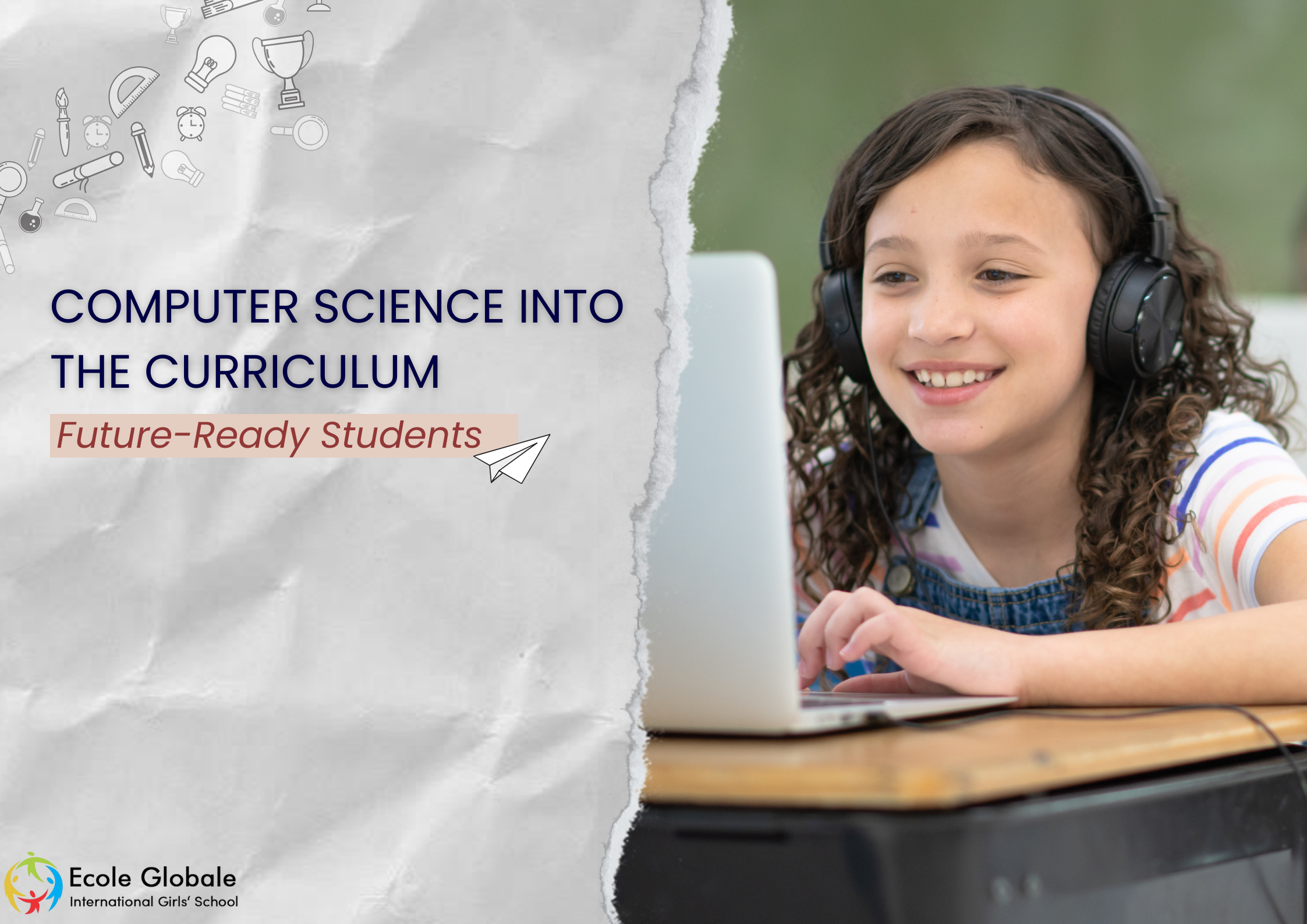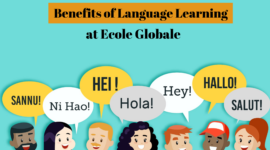In the digital era, where technology permeates every aspect of our lives, the ability to code has emerged as a crucial skill, akin to learning a new language. At Ecole Globale, a prestigious institution renowned for its commitment to academic excellence and innovation, the integration of computer science into the curriculum reflects a forward-thinking approach to education.
Understanding Coding as a Language

Coding, often referred to as programming, is the process of creating instructions that a computer can execute to perform specific tasks or functions. In essence, coding serves as a language through which humans communicate with machines, instructing them to carry out desired actions.
Just as proficiency in spoken and written languages enables communication and expression, mastery of coding languages empowers individuals to conceptualize ideas, solve problems, and bring innovations to life in the digital realm.
Treating coding as a language underscores its fundamental role in contemporary society and emphasizes its status as a medium for creativity, problem-solving, and innovation. By viewing coding through the lens of language acquisition, educators can better appreciate its significance in fostering critical thinking skills, computational literacy, and technological fluency among students.
Benefits of Computer Science into the Curriculum
![]()
The integration of computer science into the curriculum offers a plethora of benefits that extend beyond the realm of technology education. Firstly, exposure to computer science into the curriculum cultivates essential 21st-century skills, including computational thinking, logical reasoning, and algorithmic problem-solving, which are indispensable in navigating an increasingly complex and interconnected world.
By engaging in coding activities and computational challenges, students develop a mindset characterized by resilience, creativity, and a willingness to experiment—a mindset that transcends disciplinary boundaries and prepares them for success in diverse academic and professional contexts.
Furthermore, integrating computer science into the curriculum fosters digital literacy and technological proficiency, equipping students with the knowledge and skills needed to navigate the digital landscape responsibly and ethically.
In an era marked by rapid technological advancement and digital transformation, computational literacy has become a cornerstone of digital citizenship, empowering individuals to harness the power of technology for positive social change and innovation.
Moreover, integrating computer science into the curriculum promotes interdisciplinary learning and fosters connections between computer science and other disciplines such as mathematics, science, engineering, and the arts.
By exploring the intersections between coding and various subject areas, students gain a deeper understanding of complex concepts and develop cross-disciplinary perspectives that enrich their learning experiences and broaden their intellectual horizons.
Seamless Integration at Ecole Globale
At Ecole Globale, the integration of computer science into the curriculum is guided by a holistic approach that emphasizes hands-on learning, experiential exploration, and real-world application. From the early years of education, students are introduced to coding concepts and computational thinking principles through age-appropriate activities, games, and puzzles designed to foster curiosity and creativity.
As students progress through the curriculum, they engage in structured coding lessons and project-based learning experiences that challenge them to apply coding principles to solve authentic problems and create meaningful artifacts.
Whether designing interactive websites, developing mobile applications, or programming robots, students at Ecole Globale are encouraged to unleash their creativity, collaborate with peers, and explore the limitless possibilities of coding.
Ecole Globale offers a comprehensive computer science curriculum that encompasses a wide range of topics and programming languages, catering to students with diverse interests and skill levels.
Through a combination of theoretical instruction, hands-on practice, and collaborative projects, students gain proficiency in coding languages such as Python, Java, HTML, CSS, and JavaScript, as well as exposure to emerging technologies such as artificial intelligence, machine learning, and data science.
Moreover, Ecole Globale provides ample opportunities for students to participate in coding competitions, hackathons, and coding clubs, where they can showcase their skills, collaborate with peers, and pursue their passions in computer science.
By fostering a culture of innovation and entrepreneurship, Ecole Globale empowers students to become creators, innovators, and problem-solvers who are poised to make a positive impact on the world.
In addition to structured coursework, Ecole Globale emphasizes the integration of computer science into the curriculum, infusing coding projects and technology-enhanced learning experiences into various subject areas.
For example, students may use coding to analyze data in mathematics, create multimedia presentations in language arts, simulate scientific experiments in the sciences, or explore historical events through interactive storytelling and digital narratives.
By integrating computer science into the curriculum and diverse subject areas, Ecole Globale promotes interdisciplinary learning and encourages students to apply computational thinking to solve real-world problems.
Conclusion
In conclusion, treating coding as a language and integrating computer science into the curriculum of Ecole Globale represents a paradigm shift in education—one that recognizes the transformative power of technology in shaping the future of learning and human potential.
By equipping students with essential computational skills, fostering a culture of innovation, and promoting interdisciplinary collaboration, Ecole Globale prepares students to thrive in an increasingly digital and interconnected world.
As coding continues to redefine the landscape of education, it is imperative that educators embrace its potential to inspire creativity, cultivate critical thinking skills, and empower students to become active participants in the digital revolution.
By embracing coding as a language of innovation and creativity, Ecole Globale paves the way for a future where every student has the opportunity to unleash their potential, pursue their passions, and make meaningful contributions to society.
Through experiential learning, interdisciplinary integration, and a commitment to excellence, Ecole Globale empowers students to become proficient coders, creative thinkers, and lifelong learners who are poised to shape the future of technology and lead positive change in the world.
As we embark on this transformative journey, let us embrace coding as a language of empowerment and possibility, and let us empower the next generation of innovators, creators, and changemakers to realize their dreams and transform the world for the better.









